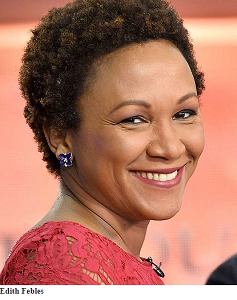
Lack of diagnostic tests, only hospitalizing seriously ill patients, and lack of government support are among the reasons cited for the expansion of the coronavirus in the northeastern capital of Duarte province out of proportion with what has happened in the rest of the country. While the government says the virus in San Francisco de Macoris is under control, the people in the town say actions are too little and do not trust the authorities and think the authorities are not keeping track of the real situation. Investigative journalist Edith Febles interviewed several in the town for her “Things as They are” (“La Cosa Como Es”) radio and TV show.
She asked Dr. Ramón Mena, a gynecologist at the Siglo 21, the leading private clinic in San Francisco de Macorís, for an overview of what is happening in San Francisco that could serve as lessons for other provinces that may be engulfed by the Covid-19 wave. San Francisco de Macoris was the first town to suffer from community spread of Covid-19 in the Dominican Republic.
Dr. Mena is frustrated that there have been long waiting lists for people to be tested. He said patients have been only hospitalized after they are in serious or critical condition. Many have died when in the emergency rooms in the city.
The San Francisco de Macoris physician said the error of waiting for the test to care for patients continues to be made in the province. “We cannot wait to have a test to manage the cases. We have to start to manage the cases depending on the clinical observations,” he said. Because of the lack of tests, many suspected patients were sent home. When they came back to the clinic, it was too late to save them.
More so, he said the medical system in San Francisco de Macoris was caught unaware and overwhelmed. He said it is necessary to protect all the medical staff, not just those working with Covid-19 patients, because the disease is asymptomatic and can be spread in all areas of a medical center.
He criticized that the government is being selective about who is assigned to offer care and what is being done to improve medical care in San Francisco de Macoris. He said his clinic could be carrying out the diagnostic tests if the government had offered them support. Instead, the test analyses have been allocated to Santo Domingo labs.
He said the new government-built facility with capacity for 60 intensive care unit patients was not going to be enough. He recommended the government back up the present medical installations. He said the government needs to accept all the help it can get from the private sector.
Dr. Mena said the disease spread so fast in San Francisco because people did not understand what social isolation meant. He said two more difficult weeks are expected before the curve flattens in the best of scenarios. He said still too few diagnostic tests are being carried out. He said he personally has 22 persons hospitalized and of these, 60% have not been able to be tested. He said there is neither any epidemiological follow-up in the city.
Also interviewed for the Edith Febles TV and radio program on TeleRadio America, Genesis Mendez, who is digital platform director for Telenord, said there is an under registration of the cases in San Francisco. He mentioned the death of the wife of the governor of Duarte province on the day after the death of the governor. The wife is not included in the 24 death cases registered at the time for the city. He said he had 10 death declarations that were not included despite these registering coronavirus as a probable cause.
Priest Ramón Alejo Cruz (Padre Moncho), the popular San Francisco de Macoris priest, observed the tragedy has united the city. “It is proven that we can make a new San Francisco,” he remarked.
Actress and Dominicana’s Got Talent host Nashla Bogaert urged that the other towns in the country not to wait for the community spread phase to begin implementing strong preventive measures. She urged the population to take the coronavirus seriously and stay home to contribute to ending the spread of the virus. “Let us not wait for the tragedy to affect someone close to us to realize it is real,” she said. “We cannot feel we are invulnerable,” she said. “There are too many people that keep going out, thinking nothing is going to happen to them.”
Follow the story in Spanish:
YouTube
YouTube
YouTube
Acento
7 April 2020

